The Science Behind How Heating Oil Radiators: How Does It Work?
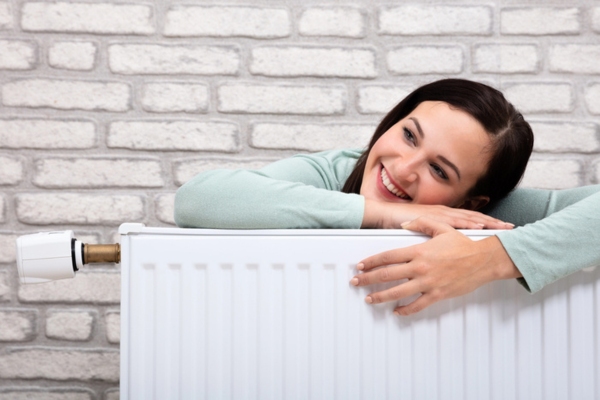
Comfortable living hinges on reliable heating systems, which offer warmth and comfort during chilly seasons. Hydronic heating systems have emerged as a leading option as the need for efficient and effective heating solutions increases. This article from McAllister Energy explores heating systems’ crucial role in ensuring cozy indoor environments. We will also examine hydronic heating systems, focusing on a hot water radiator, revealing their workings, advantages, and the innovative methods they use to provide optimal warmth and energy efficiency in contemporary homes.
Understanding Hot Water Radiators
Contents
- 1 Understanding Hot Water Radiators
- 2 How Hot Water Radiators Work
- 3 The Importance of Heating Oil in Hydronic Systems
- 4 How Heating Oil Powers Your Hydronic System
- 5 Advantages of Heating Oil & Hot Water Radiators in Hydronic Systems
- 6 Maintenance and Troubleshooting of Heating Oil Hydronic Systems
- 7 FAQs About Oil-Fired Hydronic Heating
- 7.1 What Problems Are Often Seen With Hot Water Radiators?
- 7.2 What Advantages Do Automatic Heating Oil Delivery Services Bring?
- 7.3 How Does Heating Oil’s Efficiency Stack Up Against Other Fuel Sources?
- 7.4 Is It Possible to Integrate Heating Oil Systems with Smart Home Technology?
- 7.5 What Happens During a Heating Oil Delivery?
- 7.6 How Frequently Should Heating Oil Burners Be Serviced?
- 8 Conclusion
- 9 Contact McAllister Energy for Reliable Heating Oil Delivery Services
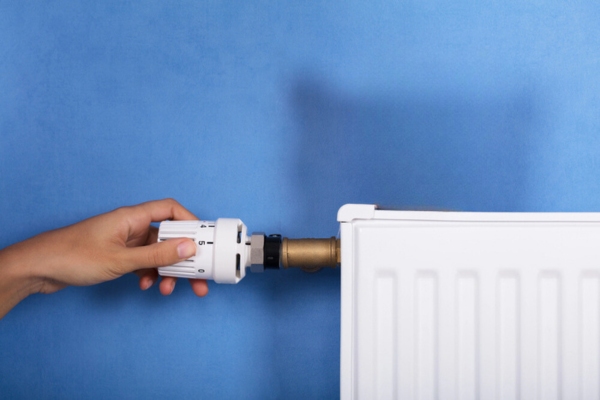
Hydronic heating systems, commonly called hot-water heating systems, utilize water as a heat transfer medium to distribute warmth throughout a home. These systems work by heating water in a central boiler, which is then circulated through a series of pipes and radiators to disperse heat effectively across the space.
Radiators boast a long history, originating in the 19th century when they transformed indoor heating. The first radiators introduced were steam-based. However, as technology advanced, hot-water radiators became more popular, offering more controlled and efficient heat distribution.
Hot-water radiators are compact units usually constructed from steel, cast iron, or aluminum. They are designed with a series of tubes or fins through which heated water flows. As the water moves through the radiator, it radiates heat, which warms the surrounding air. Cooler air is drawn in from the bottom, creating a convection loop as the warm air rises and circulates. This process ensures consistent and comfortable heating throughout the room.
Experience Unmatched Quality. Choose McAllister Energy for top-tier and affordable HVAC solutions. Contact us today to book your free consultation!
How Hot Water Radiators Work
Hot-water radiators function based on the principles of convection and radiant heat transfer. Heated water from a central boiler is circulated through pipes to the radiators, where it releases warmth into the room. As the water cools, it flows back to the boiler for reheating, creating a continuous cycle. This method is highly efficient for heating homes or buildings.
Understanding Heat Transfer
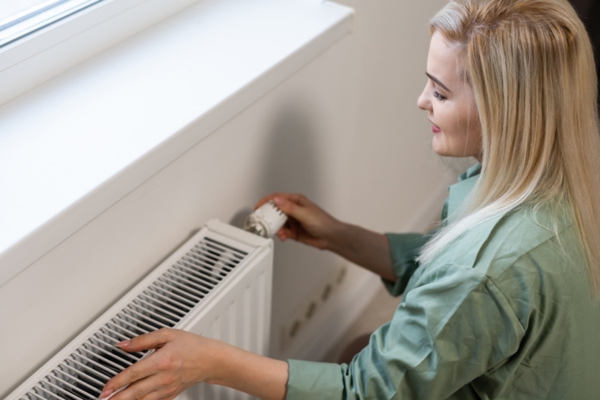
The hot water within the radiator transfers heat to the metal surfaces, radiating warmth into the surrounding air. This heated air rises, creating a convection current that distributes warm air evenly throughout the space.
Experience Comfort. Trust McAllister Energy for dependable and cost-effective HVAC services. Call us today to schedule your free evaluation!
The Importance of Heating Oil in Hydronic Systems
Heating oil frequently serves as the fuel source to heat water within the boiler of a hydronic system. Once heated, the water circulates through the radiators, transferring warmth to the surrounding space. The efficiency of the heating oil’s combustion process is critical in determining the performance and energy efficiency of the hydronic system.
How Heating Oil Powers Your Hydronic System
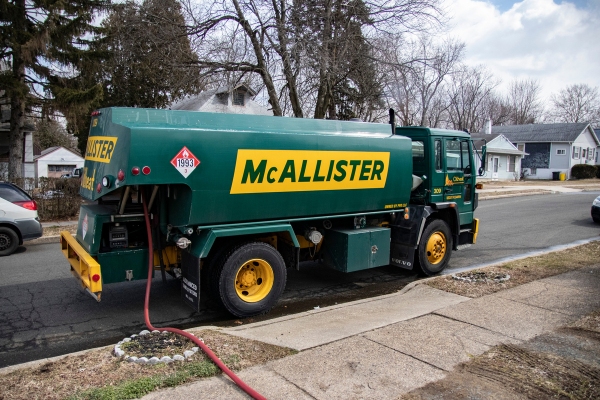
Heating oil, also called fuel oil, is a liquid petroleum product frequently utilized as a fuel source in hydronic heating systems. Derived from crude oil, it is prized for its versatility and efficiency in delivering consistent heat. The oil is stored in tanks and delivered to the boiler, where it undergoes combustion to heat the water.
Within a hydronic system, heating oil is combusted in the boiler to generate high-temperature flames. This heat is transferred to a heat exchanger, where the water circulating throughout the system is heated. The heated water is then pumped through pipes to the radiators, where it releases warmth into the surrounding space.
As the water in the radiators emits heat, it cools and increases in density. This cooler water returns to the boiler, where it is reheated. A pump within the system ensures the continuous circulation of hot water from the boiler to the radiators and back, maintaining even heat distribution.
Essentially, the combustion of heating oil initiates a process that culminates in the steady flow of heated water through the radiators in a hydronic system.
Achieve Peak Performance. Count on McAllister Energy for premium and budget-friendly HVAC solutions. Get in touch today to schedule your free consultation!
Advantages of Heating Oil & Hot Water Radiators in Hydronic Systems
Consider the benefits of using an oil-fired radiant heating system:
- Energy Efficiency: Heating oil radiators are highly energy-efficient, directly transferring heat from fuel combustion to the water. This process ensures that a large percentage of the energy generated is utilized for heating, reducing energy waste.
- Cost-Effectiveness: Heating oil radiators can be cost-effective compared to other heating methods, particularly in areas where heating oil prices are competitive. The system’s efficient heat transfer and the ability to control specific heating zones further enhance cost savings.
- Consistent and Comfortable Heat Distribution: Hydronic systems utilizing heating oil radiators ensure consistent and even heat distribution. The radiant heat from the radiators warms both objects and surfaces within the room, creating a comfortable and cozy environment.
- Environmental Impact: Recent advancements in heating oil technology have resulted in cleaner-burning options that produce fewer emissions. While it’s essential to consider the environmental implications, modern heating oil systems are designed to reduce their ecological footprint.
Maintenance and Troubleshooting of Heating Oil Hydronic Systems
Proper maintenance and timely troubleshooting are essential for ensuring the efficiency and longevity of heating oil hydronic systems.
Common Maintenance Practices for Hot Water Radiators
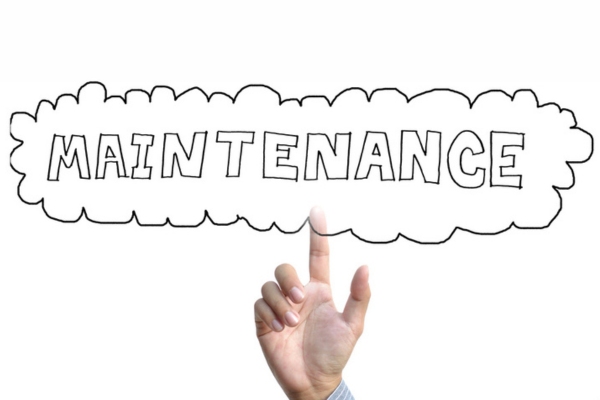
Regular upkeep of hot water radiators is crucial to maintain their performance and ensure consistent heat distribution.
- Regular Inspection: Regularly inspect radiators for signs of leaks, corrosion, or damaged fins. Promptly addressing these issues is key to maintaining efficient heat transfer.
- Bleeding Air: Periodically bleed air from the radiators to ensure optimal water circulation and prevent the formation of cold spots.
- Cleaning: Keep radiators free from dust and debris to ensure they emit heat efficiently.
Basic Troubleshooting for Common Issues with Heating Oil Systems
Addressing common issues promptly can help keep your heating oil system running smoothly and efficiently.
- No Heat: Begin by checking the thermostat settings, ensuring the boiler is turned on, and confirming that there is enough heating oil in the tank.
- Insufficient Heat: Ensure the thermostat is set appropriately, check that the radiators have been adequately bled out of the air, and consider scheduling boiler maintenance if needed.
- Leaks: Inspect the system for visible leaks and address them immediately to avoid further damage.
- Noisy Operation: Unusual noises may signal trapped air or other problems. Bleed the radiators and consult a professional if the issue persists.
Elevate Your Comfort. Choose McAllister Energy for high-quality and affordable HVAC solutions. Contact us today to schedule your free consultation!
FAQs About Oil-Fired Hydronic Heating

Here are answers to some frequently asked questions about oil-fired hydronic heating systems.
What Problems Are Often Seen With Hot Water Radiators?
Hot water radiators may encounter issues such as uneven heating, trapped air within the system, and noisy operation. Uneven heating is often resolved by bleeding the radiators to eliminate trapped air. Consistent maintenance and regular inspections can prevent these problems, ensuring the system runs efficiently and quietly. If these issues continue, seeking professional assistance for further evaluation and repair is advisable.
What Advantages Do Automatic Heating Oil Delivery Services Bring?
Automatic heating oil delivery guarantees that you always have a sufficient fuel supply, ensuring consistent warmth and peace of mind, particularly during the busiest heating seasons. It also aids in better budgeting and frequently includes maintenance checks to keep your system operating efficiently.
How Does Heating Oil’s Efficiency Stack Up Against Other Fuel Sources?
Heating oil is recognized for its high energy content, delivering more heat per gallon than many other fuels. Modern burner technology has further improved its efficiency, lowering fuel consumption and reducing emissions.
Experience Dependability. Choose McAllister Energy for reliable and affordable HVAC services. Contact our team today to arrange your free consultation!
Is It Possible to Integrate Heating Oil Systems with Smart Home Technology?
Absolutely, heating oil systems can be connected to smart thermostats and home automation platforms. This integration enables remote monitoring and control, allowing for optimized fuel usage and more efficient indoor temperature management.
What Happens During a Heating Oil Delivery?
When you receive a heating oil delivery, a technician will fill your tank to the specified level, inspect the tank and connections for potential problems, and provide a receipt detailing the amount of oil delivered and the current price per gallon.
How Frequently Should Heating Oil Burners Be Serviced?
Heating oil burners should undergo annual servicing to maintain their efficiency and safety. This regular maintenance typically involves cleaning the burner, checking the fuel nozzle, and inspecting the system for potential issues.
Conclusion
Heating oil radiators in hydronic systems deliver efficient warmth by seamlessly combining advanced technology and science. Their even heat distribution, energy efficiency, and cost-effectiveness make them an excellent option for ensuring a comfortable indoor environment. Regular maintenance of these radiators ensures effective heating and enhances the coziness and sustainability of your living space.
Contact McAllister Energy for Reliable Heating Oil Delivery Services
McAllister Energy is committed to keeping homes and businesses warm and comfortable with our dependable heating oil delivery services in Camden County NJ and surrounding areas. We prioritize fast and efficient delivery of high-quality heating oil, ensuring you get the warmth you need without any hassle. Our dedication to superior service includes competitive pricing and straightforward, transparent services, always putting your comfort first.
Alongside heating oil delivery, McAllister Energy offers a comprehensive range of HVAC services, making us your one-stop shop for all your home comfort needs. Choosing McAllister Energy means partnering with a reliable provider. With a reputation for consistent, dedicated service and a strong focus on customer satisfaction, McAllister Energy is a trusted name in the community.
You can click here to contact us now or call us at (856) 665-4545 to find out more! Click the link to view our service area.

Related Articles: